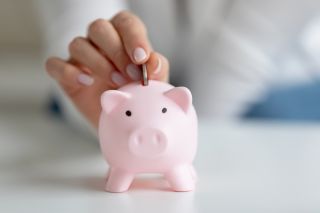DECISION-MAKING- How to Stop the Present Bias From Ruining Your Future. Understanding the present bias can improve your health and help save the planet. Reviewed by Tyler Woods

KEY POINTS-
- Due to the present bias, people often choose based on the present, even when it’s not wise for their future.
- The present bias provides a "cognitive economy" because we can make snap decisions and act impulsively.
- For a healthy future with fewer regrets, we need to balance “thinking fast” with "thinking slow."
It’s good to live in the present, or so we’re told. But as is so often true, it’s something best done in moderation. The present bias, or temporal discounting bias, is yet another reminder of this. Awareness of this bias can help you make better decisions.

What Is the Present Bias?
Every day, we make dozens of decisions. Many involve choosing between immediate or delayed consequences. The present bias is the tendency for people to prioritize here-and-now benefits over long-term costs, or the reverse—to prioritize here-and-now costs over long-term benefits.
It’s considered a cognitive bias that arises out of our natural information-processing tendencies (the way our brains work). The “now” is right in front of our faces, including the immediate benefits and immediate costs of a potential choice; hence, these dominate our decision-making.
Like most cognitive biases, the present bias provides a “cognitive economy.” It saves thinking and makes decision-making easier. In other words, weighing current costs/benefits relative to future costs/benefits is harder cognitive work.
Additionally, choosing based on future costs or future benefits often requires delaying gratification and “sucking up” some current costs in favor of future benefits. This self-control adds to our cognitive burden. It’s no wonder that people so often choose based on the present, even when it’s not wise for their future. That said, biology isn’t destiny. We can overcome the present bias. Here’s when you should.
The Present Bias and Our Health
Why do people eat, drink, smoke, ingest substances, or ingest them in amounts they know they “shouldn’t” due to future negative consequences? Why don’t they exercise when they know they should?
The present bias often plays a role. The short-term present benefits (the taste, the camaraderie, the buzz, etc.) dominate, and we make a snap decision that favors the present. Making the healthier choice is less automatic. It requires less impulsivity and more deliberate thinking and self-discipline.
Have you ever known anyone who had a health condition yet delayed going to the doctor? Known someone who wouldn’t take medication that would benefit them in the long run but had short-term side effects? Have you avoided preventative health screenings (like colonoscopies) because they’re uncomfortable or inconvenient?
These choices also can be explained by the present bias if they arise because people focus on the “now” and prioritize present benefits/costs.

The Present Bias and Our Financial Health
Denying ourselves in the present for future financial goals, such as buying a house, saving for retirement, or having a healthy emergency fund, is another example of how the present bias can hurt us.
Your financial security depends on playing the long game. That requires thinking hard about your financial future along with disciplined saving and delaying gratification. However, the present bias leads to impulsive spending based on immediate rewards.
The Present Bias and Environmental Problems
When I teach about the psychology of sustainability, students learn about environmental problems, such as climate change, deforestation, water scarcity, and plastic pollution. My students are very concerned about future environmental problems but live their lives based on the present.
They admit they automatically choose to do what brings them pleasure at the moment or is most convenient (e.g., long showers, single-use plastics, driving when they could walk or bike, etc.). They admit they rarely think about the environmental impacts of their daily choices and how these affect environmental sustainability.
This makes me rather pessimistic about climate change. Scientists have warned for decades that unless we changed our fossil fuel economies and lifestyles, disaster would occur, but people choose based on their present. But now that future has come, and while most people acknowledge the problem and its solution, for the most part, they still continue to live their lives based on what benefits them right now.
The Present Bias and Individual Differences
The present bias is a common bias, but it is affected by individual differences. Some people are higher in what’s called the “need for cognition.” They like thinking hard and rationally. They favor more deliberative judgment and decision-making.
Other people do not so much. They find thinking burdensome and hard. Also, some people, by virtue of personality or neurodiversity, are more impulsive and have a harder time delaying gratification. This makes them more prone to the present bias. For example, people with ADHD are more prone to the present bias.
Conclusion
When psychologists point out human susceptibility to cognitive biases, their intent is not to make you feel like a big dummy, it's to empower you. In this case, the bottom line is that there are times when you should think "slow," rather than thinking "fast."
Balance is the key.
You don’t always need to thoughtfully consider the current costs and benefits of a choice relative to its potential future costs and benefits. After all, you make many decisions every day, and you don't have the luxury of time or the brainpower for that. And, of course, you don’t want to be so future-oriented in your thinking that your self-discipline exhausts you and saps the joy and spontaneity right out of your life.
But for the “big” things like health, financial security, and environmental sustainability, we should do the harder work of thinking and acting for the future. We can better balance the now and the later, so we don’t bear the often-significant costs of choices dominated by the present bias and experience deep regret.
- Questions and Answers
- Opinion
- Story/Motivational/Inspiring
- Technology
- Art
- Causes
- Crafts
- Dance
- Drinks
- Film/Movie
- Fitness
- Food
- Games
- Gardening
- Health
- Home
- Literature
- Music
- Networking
- Other
- Party
- Religion
- Shopping
- Sports
- Theater
- Wellness
- News
- Culture
- War machines and policy

